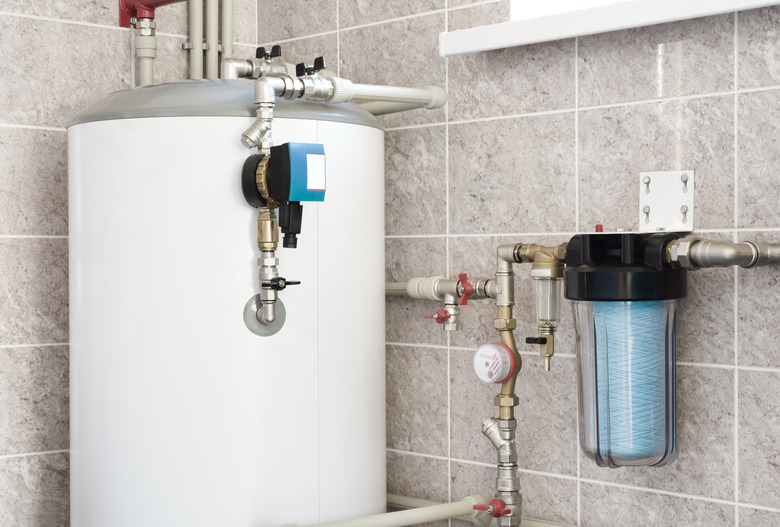What Does Btu Stand For In Water Heaters?
Water heaters come in various shapes, sizes, fuel types, and configurations. Reading the spec sheets of these to determine which one is right for you can be confusing. Btu, or British thermal units, is a measure of heat output. While this is a key specification for water heaters, there are other, more user-friendly, specs that will help you make the best choice when shopping for a new water heater. The first thing to figure out is how much hot water is needed for your household's daily routine. The next step is to figure out what type of water heater uses every Btu in the most efficient manner.
Defining a Btu
Defining a Btu
A Btu is defined as the amount of energy it takes to raise 1 pound of water 1 degree Fahrenheit. The term "Btu/hour" is the amount of energy that it takes to heat 1 pound of water 1 degree in one hour. Class dismissed, right? Not yet — let's put that Btu to work in a water heater.
A 40-gallon water heater contains roughly 330 pounds of water. Simple math (330 pounds/60 minutes = 5.5 Btu/hr) shows that it will take 5.5 Btu to raise those 330 pounds of water 1 degree in one hour. What about raising 60-degree water to 110 degrees (as hot water is defined)? After taking 50 (110 – 60 = 50) hours to reach 110 degrees, those few Btu will not sustain the temperature without enough energy to keep you warm during a shower, never mind filling a garden tub.
Defining Recovery Rate
Defining Recovery Rate
The recovery rate converts Btu or watt input (for electric water heaters) into gallons per hour (gph). A higher recovery rate translates to more Btu or watts, and the higher the input rating will be to the water heater. This input rating is what is used to size the gas and flue piping (or the wire size and circuit breaker for electric units) feeding the appliance. This can also make the efficiency higher or lower depending on the design of the water heater.
To keep a nice, hot shower going, more energy is necessary. More energy input — by either Btu or watts — will provide a higher recovery rate. This is why many people with electric water heaters complain about the hot water when showers are taken back to back: Gas water heaters recover much more quickly than electric models. In short, the greater the recovery rate, the better the performance of the water heater, but it may require more energy to recover quicker. Keeping that energy where it belongs is key to greater efficiency.
Water Heater Efficiency
Water Heater Efficiency
The energy efficiency of a water heater is reflected in its uniform energy factor (UEF). To help consumers compare apples to apples, water heaters are grouped according to their size (tank capacity) and their first hour rating, the amount of water (in gallons) that the unit can heat in one hour. The higher the UEF, the lower the energy usage of the appliance.
Water Heater Energy Incentives
Water Heater Energy Incentives
Choosing a water heater that fits your budget while keeping up with the demands of your home is where certain incentives come into play. Some styles of water heaters are more energy efficient than others, and highly efficient models may qualify for rebates. Information about rebates is available through utility providers, heater manufacturers, and energy efficiency organizations. You can also ask your plumber if there are any rebates or other incentives available when getting an estimate for a new water heater installation. The goal is to get the best water heater within your budget that still provides you with good use of every Btu needed for your hot water requirements.
